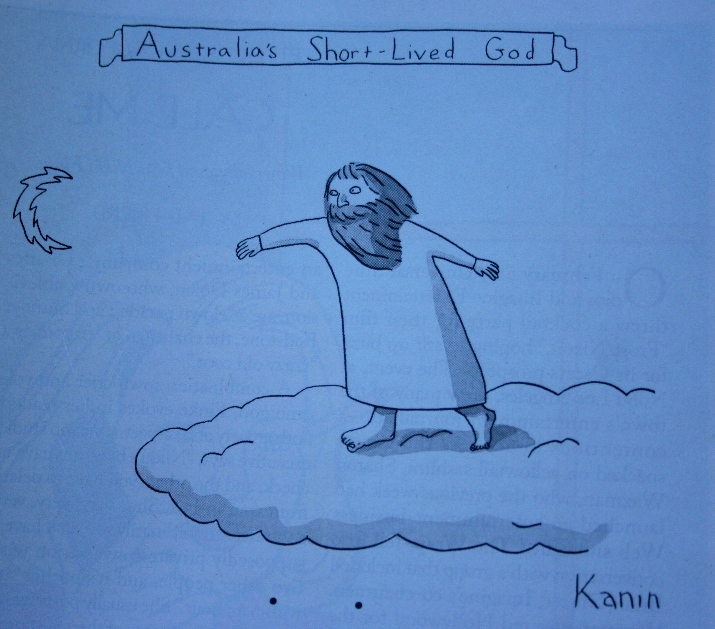I have been otherwise busy over the last two days with shopping, playing with the kids, cooking, and services. Some have asked what we did on Christmas Eve. My day included preparing the sermon below for the 7 pm service. I am not sure how much I will post in the next day so I wish you all a blessed Christmas season!
24 December 2007
St. Andrew’s, State College
Isaiah 9:2-7
Luke 2:1-14(15-20)
Psalm 96
I wish you all a warm and happy Christmas! This is a beautiful night and the sanctuary glows, literally by the candlelight, but also with your presence. I am sure that I am not the only one for whom today was a busy day. Adults doing last minute shopping for gifts and meals to be prepared; many of you have traveled a long way to be with family; and for the children it has been perhaps the longest day of the year, matched only by how long tonight will seem to last! The expectation that we all have is palpable.
When I preached on the Second Sunday Advent I asked us to consider what we were all expecting for Christmas. I did not receive my 9 foot tall Nativity snow globe, however thanks to an early visit by the maternal grandparents our children already have some very treasured presents. (And I injured myself using one of them last night. But that is another story.) Tonight the time has arrived, our waiting and expectation is over and we celebrate the advent of Christ, the birth of Jesus.
Christmas is perhaps the best known of Christian festivals. Needless to say it has not always been celebrated as it is today (even ignoring the commercialism that marks our western celebrations today). In fact, at various times in Christian history, the church itself has forbidden the celebration of Christmas. This was particularly true during the period of the Puritans when Cromwell, the Lord Protector of England, banned all feasts of the Nativity. Today the church rightly celebrates this seminal festival.
But in spite of the familiarity that we all have for this glorious celebration, at its heart lies perhaps the most challenging and fundamental of Christian beliefs. The birth of Jesus is nothing less than the incarnation of God. The term “incarnation” is understandable enough thanks to the flourishing of Mexican restaurants today. Carne a sada, chile con carne, and so on. Carne is “the flesh.” “Incarnation” is the “indwelling” of God in the flesh. Jesus is “Emmanuel,” God with us.
This notion that somehow Jesus was both fully God and man, that the child Mary gave birth to was nothing less than the Son of God, has challenged us all over the millennia. Theologians and thinkers far better than I have wrestled with this notion but on this night of the incarnation I would like to offer some suggestions as to why God became flesh and dwelt among us.
First and foremost the coming of the messiah was foretold by the Israelite prophets. Our reading from Isaiah tonight came from a time when the nation of Judah was in great peril of invasion. The prophet Isaiah declared to King Ahaz not only that he should survive and his kingdom remain strong, but that God would establish his eternal kingdom that would bring endless peace, justice, and righteousness. The advent of Jesus declared that God’s kingdom was near and we know that we he comes again as judge that final age shall be established forever.
Yet God becoming human is not just theological concepts or words uttered by religious men long dead. The very notion of God’s humanity is about bringing to humanity those things that words cannot express. The Law was divinely given to Israel through Moses on Sinai but the time had and has come for the living expression of God’s will for his people. The fact that Jesus lived and walked among us, that he had friends and followers, that he was a child growing up with hunger and sleeplessness, weariness and pain, temptations and troubles conveys to us the relational aspect of God’s love. He is not only transcendent, looking down on us from afar, but he is immanent, here with us, feeling and knowing what life is like for us human creators.
Jesus’ presence on earth provides us with God’s living Law, the prime example for us to emulate. Think about this as we go through the next year. Listen to the Gospel readings each Sunday, read them on your own, and consider what example it is that Jesus has left for us, not just in his words, but in his actions. Jesus demonstrated what it means to love one’s neighbor as oneself as he sat at meals with those whom others would not even let in the door. He touched and healed those whom others would not even look upon. He fed the hungry and directed those who followed him to offer not just their coats, but even their hoodies to those who needed clothes. (Well, the equivalent of hoodies.)
The day to day life of Jesus as seen in the Gospels shows us also the companion that he was to his disciples and is still to those who follow him. He lived, slept, and ate with those men and women. He cried with them and held them. Again, this is our example to follow, to hold and comfort those around us and to receive their comfort to us. Most of all, to simply be with them in their joy and grief, love and anger, hunger and feast. Jesus was their companion and he remains our companion even now. The presence of the Holy Spirit is never absent. Remember, Jesus promised us that if we love him and keep his commandments he would send “another Comforter [Advocate],” that is the Holy Spirit (John 14.16) to remain with us always. The physical presence of Jesus presaged the eternal presence of the spirit dwelling in all those who call upon his name. We will never walk alone because Jesus walked the earth.
Of course much of Jesus’ actions that the Gospels record for us is his teaching and preaching. In his life Jesus showed us that it is imperative that we declare the coming of God’s kingdom, even when it puts us at risk of being rejected by our community or sometimes even our own family. The Word of God became flesh to show us again how to speak the Word of God to those who need to hear it most (who are often happen to be ourselves). We are not all called to be preachers or evangelist, but that is just the point. Jesus often most powerfully demonstrated God’s coming kingdom through what he did. The God-in-flesh provided us with this example a well.
I can already hear one objection to my assertion that we are to look to Jesus as our example. And I can hear it clearly because it is often my own complaint. Jesus was God and we are not. Of this, I am sure. After all, this is the point of the sermon, Jesus is nothing less than God made manifest in human flesh. So can we possibly expect to follow his example? Jesus is our goal and our model. We should not be discouraged by the reality that we do not live up to the standard that Jesus provided in his life. But we must be encouraged to continue to set before us the goal that we might become like Christ because we are not and cannot be Christ. Certainly we cannot do that one and most important thing for which Jesus became flesh. He alone has redeemed the world from itself. His very name means “salvation” and Jesus was born so that he might die for our sins.
This is why the baby was born, why the Word became flesh, to show us what it really means to be human, created in the image of God, and to once again make us at one with God.
Amen.



